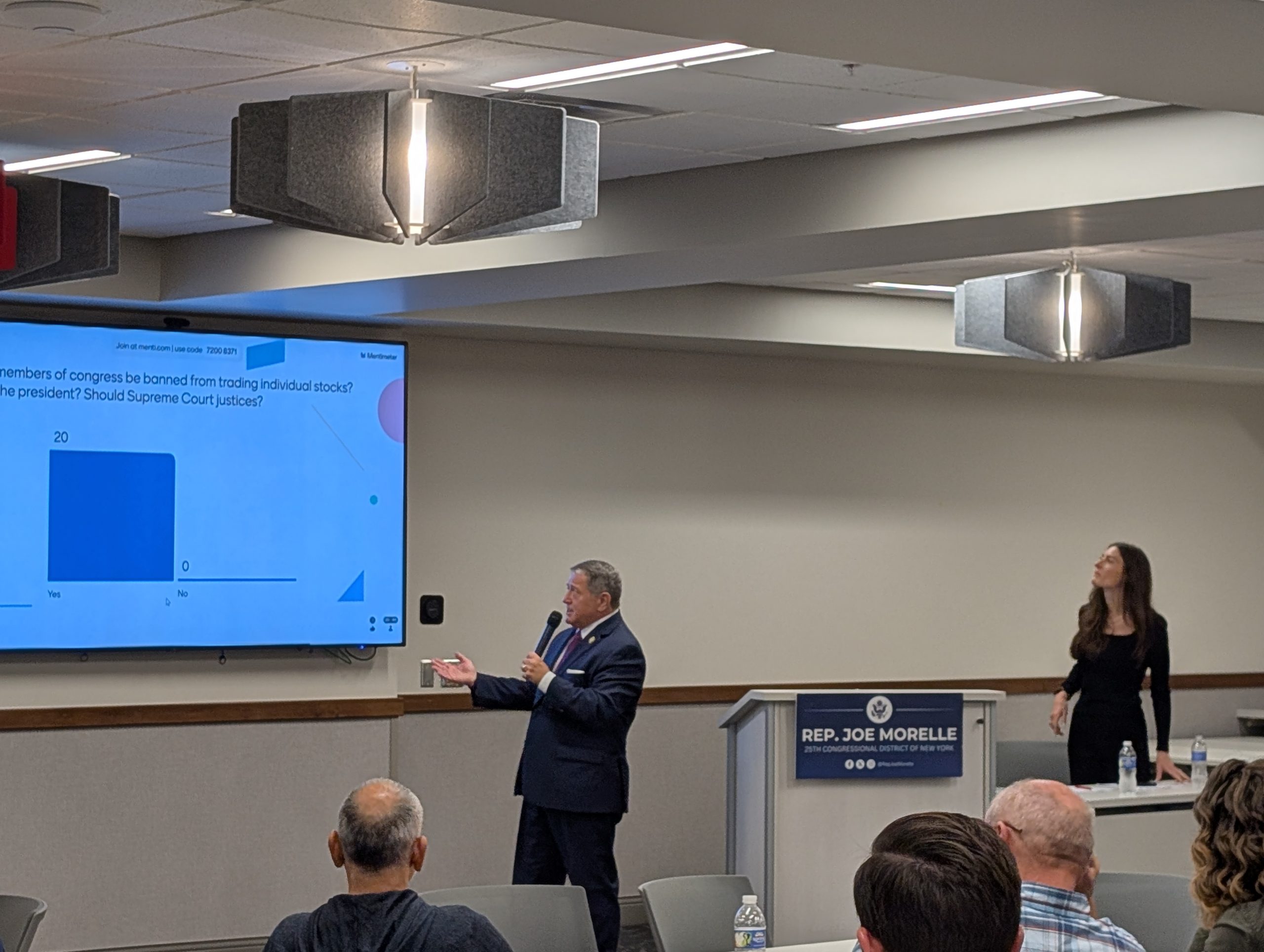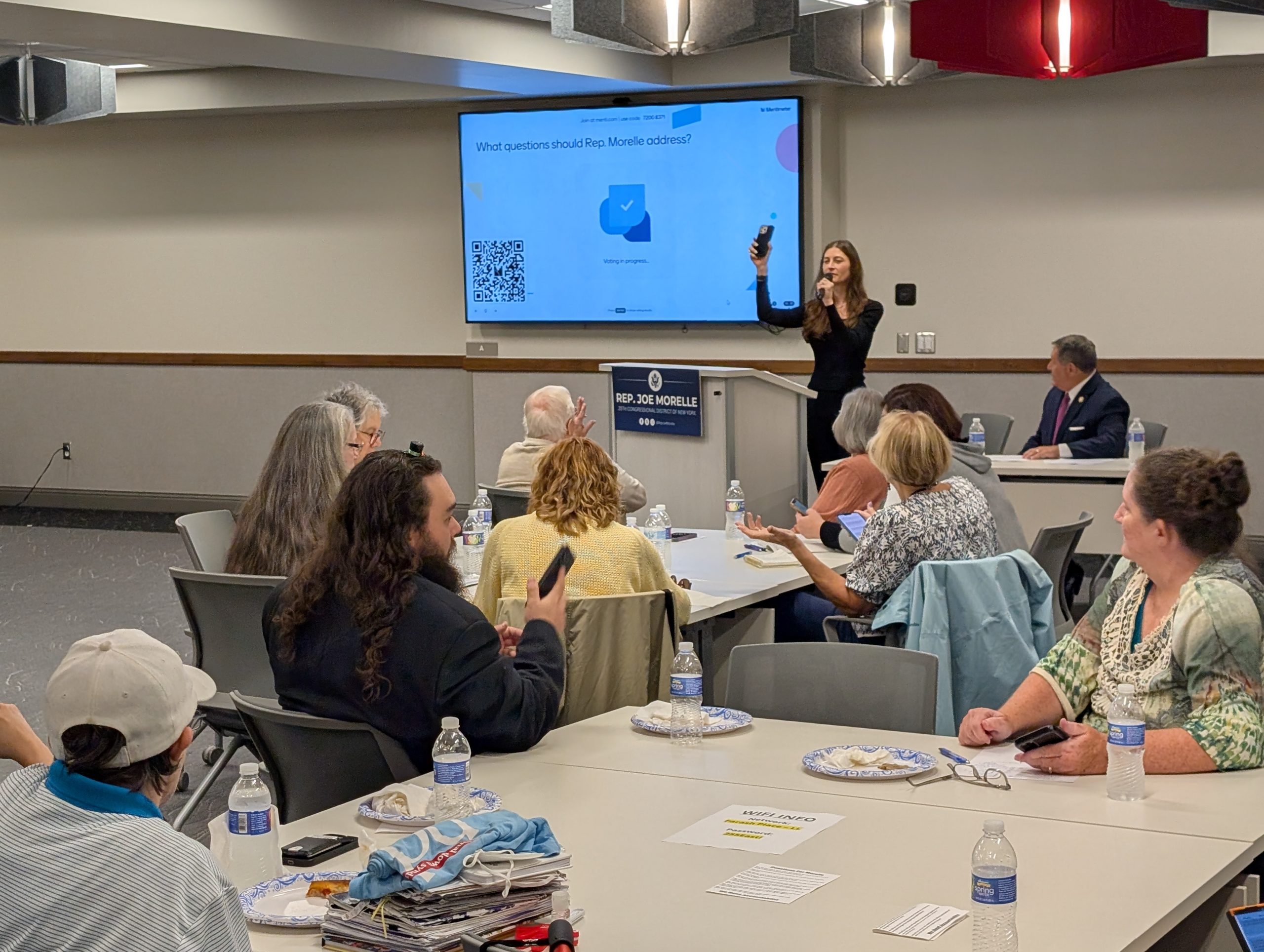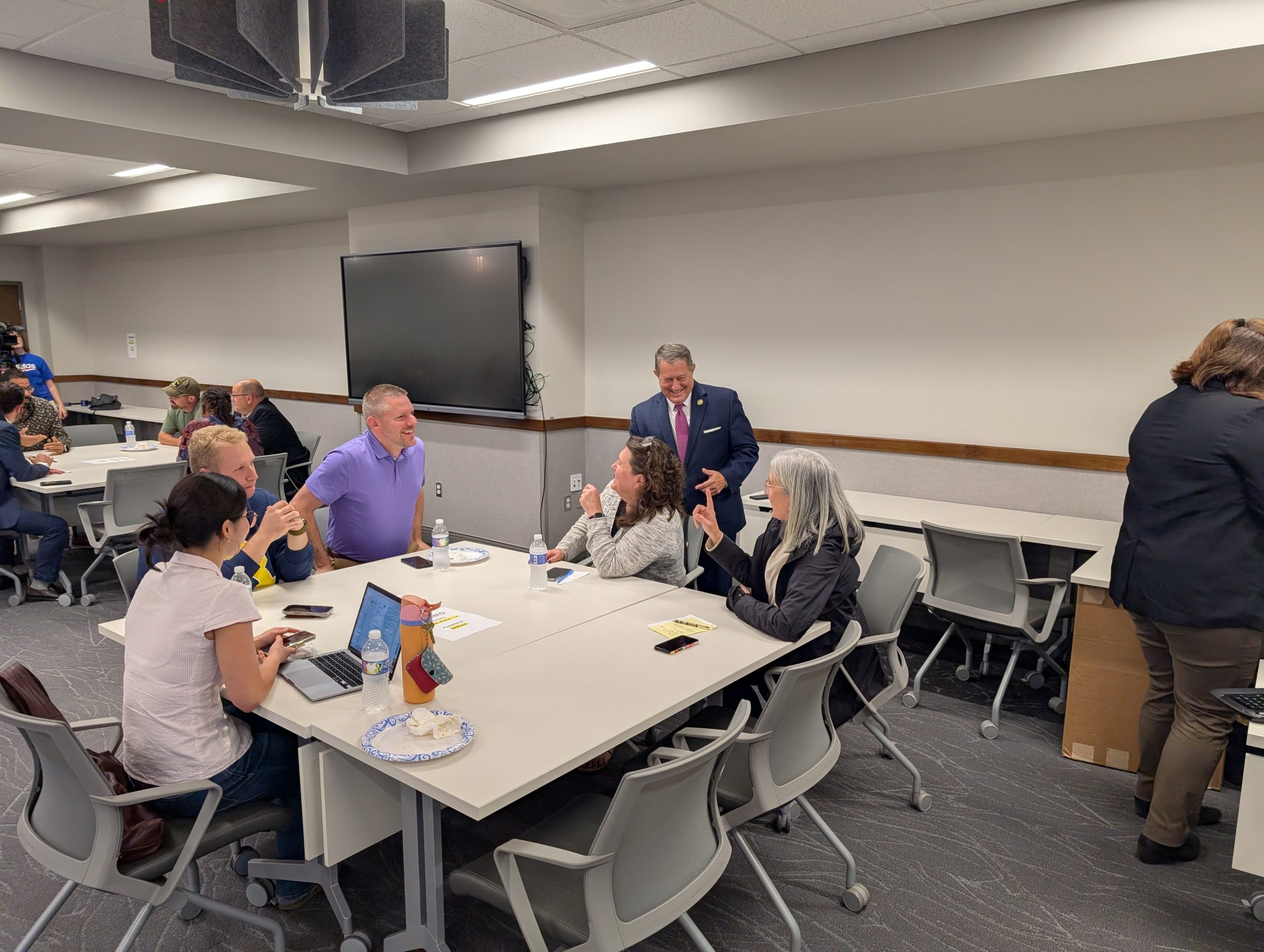 Last week, residents of New York’s 25th congressional district joined their congressman, Rep. Joe Morelle, for an experiment in democracy. (Thanks to WXXI, Rochester, NY’s NPR station for its coverage!)
Last week, residents of New York’s 25th congressional district joined their congressman, Rep. Joe Morelle, for an experiment in democracy. (Thanks to WXXI, Rochester, NY’s NPR station for its coverage!)
You may already know about the National Civic League’s work to transform public meetings at the local level. Elements like a focused topic, small group discussions and facilitated engagement with elected officials are now well-tested in a wide variety of communities and have the potential to improve policy discussions at every level of government. We’ve, read the news lately so we decided to test these elements out at the federal level in a congressional town hall.
This event had an additional twist: we ran a civic lottery to randomly select a demographically representative sample of constituents. Of more than 700 people who entered, we invited 50 to attend.

The goal of the lottery was not to exclude willing participants but to intentionally convene a roomful of people who would probably not ordinarily be in conversation with one another. Members of congress are used to hearing from the loudest voices but rarely hear from a true cross-section of their constituents. In contrast, this event drew constituents with far greater variation in age, income, race, and neighborhood than you would ordinarily see.
(We didn’t ask about political affiliation, for two main reasons. First, experience with thousands of individuals over the years has taught us that many people’s politics are more complex than a four-point scale of liberal-to-conservative can capture. Secondly, while political parties offer a useful framework for organizing ideas into a coherent worldview, we also want to open up opportunities for people to think and speak authentically about issues on the merits.)
We started with an overview of the evening’s hot topic: government corruption. Next, people discussed their biggest concerns in small groups, and each group submitted three questions or comments, using an online tool. The full group voted to prioritize three questions and comments that would set the agenda for the discussion.
What followed were thoughtful conversations, no-BS questions, and an evening much different than what we’re used to seeing on the news.

Someone asked a question we get a lot: when you bring people together from across the political spectrum, do people leave with more moderate opinions? In our experience, the answer is “sometimes, but that’s not the goal.” What mostly happens is that people discover common ground they already shared with one another but didn’t know about, regardless of political affiliation. We shouldn’t push people to leave their values at the door when they talk politics; we should create places where agreement and collaboration become visible options.
We hope to expand this work to congressional districts across the country. Reach out to [email protected] to learn more.



